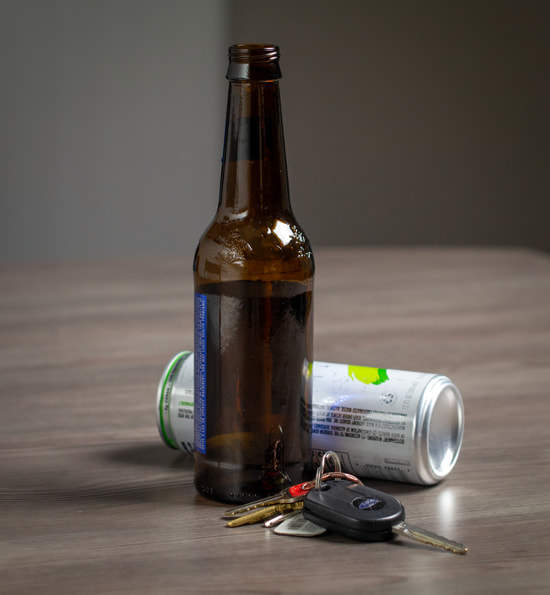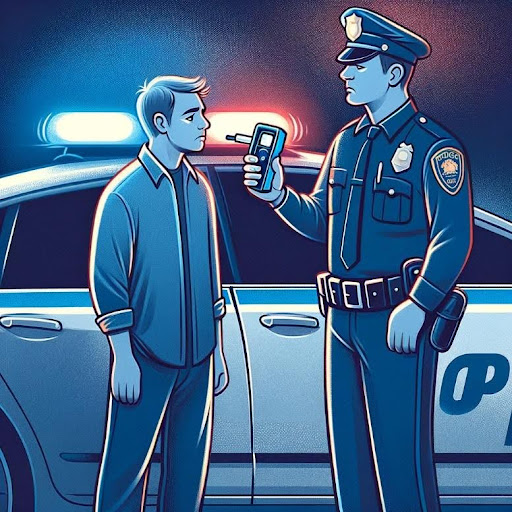






-

-
-
Maggie GeorgeRated by Super Lawyers
loading ...
Michigan DUI/OWI Defense Lawyers
As experienced Michigan DUI lawyers, we understand that everyone’s goal is to stay out of jail and protect their future. This often requires highly skilled legal counsel because Michigan has very strict drunk driving laws. In fact, certain areas such as Oakland County have sentenced offenders to jail for a first offense OWI. As a result, hiring the right attorney can be a life changing decision.
George Law is Lead Counsel Verified and recognized as experts in DUI defense. We have the knowledge, experience, and expertise to keep you out of jail and protect your future. If you’ve been arrested in Michigan for drunk driving or need help restoring your driver’s license, call our DUI attorneys for free consultation today. (248) 470-4300
— Page Navigation —
- Michigan Drunk Driving Laws
- Operating While Intoxicated (OWI)
- Penalties For Drunk Driving
- How a DUI Affects Your Life
- Driver’s License Restoration
- What Prosecutors Must Do to Convict You of OWI / DUI
- Breathalyzer Test During a DUI Stop
- How Our DUI Lawyers Can Help
- DUI Defense Certifications
- Client Results
Michigan Drunk Driving Laws
The State of Michigan has strict laws on drunk driving. To put this in perspective, an offender may receive up to 93 days in jail for the first offense. Furthermore, Michigan classifies drunk driving as a traffic offense as well as a criminal offense so a DUI stays on your driving record indefinitely.
According to the Michigan Vehicle Code you can be charged with drunk driving if you’re suspected of operating a motorized vehicle with a Blood Alcohol Content (BAC) of 0.08% or higher.
In certain cases, a suspect can be charged with a DUI offense even if their BAC is under 0.08%. For example, the police can charge someone with Operating While Visibly Impaired (OWVI) if they believe that the suspect’s driving is impaired regardless of BAC. Furthermore, the police can charge someone under the age of 21 with drunk driving if their BAC is 0.08% or higher.
The penalties for a DUI conviction varies based on several factors. These factors may include: your blood alcohol content (BAC), the number of DUI convictions on your record, and whether or not an accident was involved. If you’d like more information on Michigan drunk driving laws, we published a comprehensive guide that covers this topic in greater detail.
Operating While Intoxicated (OWI)
The most common offense related to drunk driving is Operating While Intoxicated (OWI). This is generally considered a criminal misdemeanor, although in certain cases it can be considered a felony. Because of this, OWI offenses should be taken seriously as they have the potential to have life changing effects. Having the right DUI/OWI lawyer can make a huge difference on the outcome of your case.
The penalties surrounding OWI increase upon every subsequent conviction, resulting in longer jail time and heavier fines. The State of Michigan’s drunk driving statutes are harsh and unforgiving of repeat offenders. It is because of this, it is critical that every OWI charge be fought aggressively in order to prevent them from snowballing into an untenable situation for the defendant.
An experienced OWI attorney can help minimize penalties and ensure your legal rights are upheld. This is especially critical if you have previous OWI convictions on your record.
Michigan DUI Offenses And Penalties
OWI (First Offense) – As a first offense, this carries the lightest penalties of any DUI conviction. These penalties include up to 93 days in jail, fines of up to $500, up to 360 hours of community service, and potential vehicle immobilization and even possibly requiring the installation of an ignition interlock device during the probationary period.
OWI (Second Offense) – This offense carries with it a minimum jail time of five days, going up to one year depending on the circumstances surrounding the offense. It also carries with it a minimum fine of $200 to $1,000, 30 to 90 days of community service, mandatory vehicle immobilization and the possibility of an ignition interlock device during probation.
OWI (Third Offense) – Instead of a misdemeanor like the first and second offenses, a third offense OWI becomes a felony and carries with it a prison sentence of one to five years, as well as a $500 to $5000 fine. In addition to this, it carries a 30 day to one year probation period as well as a 60 to 180 day community service. Like the second offense OWI, there is mandatory vehicle immobilization and possible ignition interlock device installation during the probationary period.
Super Drunk OWI – This is for exceptionally high BAC offenses, when the offender registers a BAC of 0.17 or higher – nearly double the legal limit. With super drunk OWI, the penalties are increased dramatically over a normal OWI conviction.
OWI Causing Death – This offense yields a potential 15 years in prison with fines minimum fines of $2,500 up to $10,000 maximum. This offense also yields a mandatory vehicle immobilization. If a law enforcement official or firefighter dies it’s considered a violation of 257.653a. In this case, the prison sentence may be increased to 20 years.
OWVI (First Offense) – First offense OWVI includes up to 93 days in jail as well as fines of up to $300. It also has the possibility for up to 360 hours of community service as well as possible vehicle immobilization dependent on the court’s discretion.
OWVI (Second Offense) – A second offense OWVI conviction carries with it similar penalties as first offenses, however they are increased. There is a mandatory jail time of five days, with the potential of being up to one year. In addition, it carries with it a fine of $200 to $1,000, as well as 30 to 90 days of community service as well as mandatory vehicle immobilization.
OWVI (Third Offense) – Like a regular third offense OWI, this is upgraded from a criminal misdemeanor to a felony level offense. A third offense OWVI conviction carries with it a minimum prison sentence of one year, with the possibility of up to five. In addition, it includes fines ranging from $500 to $5000, as well as a probation ranging from 30 to 90 days and 60 to 180 days of community service. Vehicle immobilization is mandatory.
UBAC/UBAL (First Offense) – First offenses for Unlawful Bodily Alcohol Content (also known as Unlawful Bodily Alcohol Level) carry the possibility of up to 93 days in jail, as well as 360 hours of community service and fines of up to $500.
UBAC/UBAL (Second Offense) – Second UBAC/UBAL offenses carry stiffer sentencing, with up to one year in jail as well as the possibility of fines ranging up to $1,000 and community service of up to 360 hours.
Learn more about potential DUI/OWI penalties in Michigan
How a DUI Affects Your Life

A DUI conviction can have many long lasting and potentially life altering effects on an individual’s life. In most cases, a DUI will result in jail time as well as significant legal fees that can cripple a person’s finances. To make matters worse, when an individual is incarcerated, there is a very good chance that they will lose their employment, making it even more difficult to fund their legal fees and pay the fines resulting from a conviction.
In addition to the immediate effects of a conviction, there are other more long-term consequences that can have a lasting negative impact on an individual’s life. The first of these is that a DUI stays on your permanent criminal record, and because the State of Michigan also considers it a moving violation, it is part of your driving record as well. This creates several serious problems for the individual.
The first of these is that having a criminal conviction on your record can make it difficult to seek future employment (in certain industries it can bar you from employment altogether). Additionally, because a DUI conviction also is on your driving record, it can dramatically affect car insurance costs. Depending on the circumstances, certain insurance companies won’t even consider insuring a driver with a previous DUI infraction on their driving record – making them unable to legally operate their vehicle on public roads.
Driver’s License Restoration
Getting back your driver’s license is a difficult and time consuming task. There are many obstacles in the way, as the State of Michigan treats drunk driving quite harshly and does not make it easy for individuals to regain their driving privileges. Having an in-depth understanding of how this process works is key for a successful outcome, as well as having a good working relationship with the courts in order to present your case in the most favorable light possible.
The first step for those looking to restore their driving privileges begins with having an Administrative Hearing with the Secretary of State’s Driver Assessment and Appeal Division (DAAD), formerly known as Driver Assessment and License Appeal Office or DLAD. This hearing will allow your case to be heard in front of an examiner, with the possibility of being granted a reinstated license with either restricted or full driving privileges.
In the event that driving privileges are not reinstated, the case can be appealed to the Circuit Court within 63 days after the initial denial of license reinstatement (up to 182 days with good cause). The appeals process involves a hearing in front of a circuit court judge in the county in which the appellant resides, with an assistant attorney general present who is tasked with representing the interests of the Secretary of State.
During the hearing, the determination of the DAAD hearing officer’s decision will be challenged, and it must be argued that your rights have been prejudiced because the SOS hearing officer’s decision is:
- In violation of either the State or Federal Constitution or a law of either level of government
- Beyond the authority or jurisdiction of the SOS
- A result of material prejudice against you because of unlawful procedures used
- Not actually supported by substantial evidence
- Based on abuse or unwarranted exercise of the officers discretion
- Influenced or affected by any other substantial error of law
The appeals process is challenging, with successful outcomes being exceptionally difficult to achieve without solid legal representation. Assistant attorney generals and prosecutors almost always have working relationships with judges and the courts system, resulting in a stacked deck against the appellant. This is why working with an experienced defense attorney is so critical for getting your driver’s license back. A good DUI and license restoration attorney will have solid connections and working relationships with all parties involved, which can be the difference between getting your license back and continuing to struggle with your transportation needs.
What Prosecutors Must Do To Convict You Of OWI / DUI
 In Michigan, to convict you of Operating While Intoxicated (OWI), also known as Driving Under the Influence (DUI), the prosecutor has to go through several steps. First, under Michigan Vehicle Code Section 257.625, the prosecution must prove that you were operating a vehicle. The term “operating” is broadly defined and doesn’t just mean driving in motion. It can include situations where you were in control of the vehicle, even if it wasn’t moving. This could be inferred from your position in the driver’s seat, possession of car keys, or any action showing control over the vehicle.
In Michigan, to convict you of Operating While Intoxicated (OWI), also known as Driving Under the Influence (DUI), the prosecutor has to go through several steps. First, under Michigan Vehicle Code Section 257.625, the prosecution must prove that you were operating a vehicle. The term “operating” is broadly defined and doesn’t just mean driving in motion. It can include situations where you were in control of the vehicle, even if it wasn’t moving. This could be inferred from your position in the driver’s seat, possession of car keys, or any action showing control over the vehicle.
Secondly, they need to prove your impairment or intoxication. There are multiple ways to do this. One common method is through chemical testing, such as breath, blood, or urine tests, to determine your Blood Alcohol Content (BAC). In Michigan, a BAC of 0.08% or higher is considered legally intoxicated for adults over the age of 21. For commercial drivers, the limit is lower, set at 0.04%. Michigan enforces a Zero Tolerance policy for drivers under 21, meaning any detectable BAC (0.02% or higher) can lead to DUI charges.
If your BAC is 0.17% or higher, this falls under the ‘High BAC’ law and can lead to more severe penalties. It’s also worth noting that you can be charged with a DUI with a BAC below these thresholds if the prosecution can prove that your ability to operate the vehicle was substantially affected by alcohol or drugs.
In addition to BAC levels, the prosecution can use observations and evidence from the traffic stop. This includes the police officer’s testimony about your driving pattern before being pulled over (like swerving, erratic driving, etc.), your physical appearance (such as bloodshot eyes, slurred speech), your behavior during the stop, and your performance on field sobriety tests. Field sobriety tests are standardized exercises (like walking in a straight line or standing on one leg) used to assess your physical and cognitive functions.
The prosecutor may also introduce evidence from the scene, such as open alcohol containers in the vehicle or drug paraphernalia, and statements or admissions you made during the arrest. Eyewitness testimony, if available, can also be used.
It’s important to note that refusing to take a chemical test when requested by law enforcement can lead to automatic penalties, including driver’s license suspension, under Michigan’s implied consent law. This is separate from the DUI charge but can be used in court to suggest guilt.
In cases where you are accused of causing an accident, injury, or death while driving under the influence, the charges are more serious. The prosecutor would need to prove the DUI in addition to establishing a link between the intoxication and the accident.
Remember, in all cases, the burden of proof lies with the prosecution. They must establish beyond a reasonable doubt that you were operating the vehicle and that you were under the influence of alcohol, a controlled substance, or other intoxicating substances to the extent that your ability to drive was impaired.
Breathalyzer Test During A DUI / OWI Stop
Under Michigan’s DUI laws, the breathalyzer test is a significant part of law enforcement’s approach to handling suspected cases of Operating While Intoxicated (OWI), also known as driving under the influence (DUI). This law, which covers the state’s stance on DUI, plays a role in both enforcement and the criminal process related to drunk driving.
Mainly, MCL Section 257.625a grants police officers the authority to conduct a preliminary chemical breath analysis if they have reasonable cause to believe that a person was operating a vehicle while intoxicated. This test measures the alcohol concentration in your breath, which is used to identify your blood alcohol content (BAC). The legal BAC limits are 0.08% for most drivers, 0.04% for commercial drivers, and a zero-tolerance policy for drivers under 21, indicating any detectable alcohol level is unlawful.
Michigan’s implied consent law, under Section 257.625c, means that by driving in Michigan, you automatically consent to submit to chemical tests, including breathalyzer tests, if suspected of DUI. Refusal to submit to such tests can lead to immediate penalties, such as driver’s license suspension. Moreover, officers might be able to seek a court order to compel you to take the test if initially refused.
For drivers who test with a BAC of 0.17% or higher, Michigan’s ‘High BAC’ or ‘Super Drunk’ law comes into effect, introducing more severe penalties. This is because of the increased risks and potential harm associated with higher levels of drinking.
However, the reliability of breathalyzer tests can sometimes be contested. The accuracy of these devices and the procedures followed during their administration can be challenged in court proceedings. Still, they are widely accepted as valid indicators of intoxication levels. It is also important to note that under Michigan law, an arrest can still be made based on other evidence of impairment, even if the breathalyzer test indicates a BAC below the legal threshold.
Michigan police officers go through specific procedures following the administration of a test showing an unlawful BAC, including immediate confiscation of the driver’s license and the issuance of a temporary license.
Why Hire Our DUI Lawyers
The attorney you choose to represent you in a drunk driving case will make a big difference in the outcome. While many people think they can just use a public defender, this is a poor strategy for a successful outcome. Public defenders are paid by the same entity that pays the judge – the courts. It is very likely that when working with a public defender, you will end up with an unfavorable plea.
In addition to this, just simply hiring a private defense attorney does not mean you will be more successful. Experience and specialization in DUI/OWI cases is crucial for an effective defense, and an attorney who has neither will be of little more value than a public defender. In the event that you go to court without an attorney or a public defender, the state won’t even consider offering a deal, meaning you will be left with the full consequences of a conviction. To protect your driver’s license and your future, it is critical that you work with a strong, experienced DUI/OWI defense attorney with a track record of success.
The expert criminal defense attorneys at George Law have decades of combined experience in defending clients and ensuring they receive the most favorable outcomes possible. Attorney Derrick E. George has over 10 years of experience defending people who are accused of drunk driving, with a well known reputation for obtaining favorable outcomes in DUI/OWI cases. Our firm is well versed in the ins and outs of Michigan DUI laws, finding creative legal solutions for our clients to ensure their lives are not ruined over an instance of bad judgement.
What an Experienced DUI Attorney Will Do
An experienced DUI attorney has many avenues and options for ensuring positive outcomes for their clients. As with most areas of legal defense, there are grey areas, exceptions and the possibilities of a discrecion by the courts. An expert DUI attorney knows how to use these to their advantage, painting their client in the best possible light and ensuring that their circumstances and side of the situation are clearly heard by the judge.
The first and most obvious benefit of hiring the right DUI attorney is that they can keep you out of jail. As mentioned before, jail time can cost an individual their job, have a negative impact on their family life and make normal functioning in life nearly impossible. In addition to the stiff fines levied by the State of Michigan, there are certain judges who are known for issuing mandatory jail time – even for first time offenders. Throw that on top of the possibility of a driver’s license suspension, alcohol abuse evaluations and even the required use of an ignition interlock device, it should be obvious that no one can afford to go without legal representation when facing DUI charges.
Out of the toolbox a DUI attorney has at their disposal, there are several common ways in which they can approach and successfully minimize the consequences of a DUI arrest. These defenses are useful even if the defendant has failed a field sobriety test and/or a BAC test. Below are several examples:
- If the police officer stopped you without probable cause, the charges could be dismissed.
- If the police officer failed to properly calibrate the breathalyzer machine, the blood test results could be suppressed. This may result in case dismissal.
- If the police made procedural errors, the charges could be reduced or dismissed.
There may be circumstances that cast doubt on the field sobriety and breathalyzer test results.
Even if the police made no mistakes, there are things an experienced DUI/OWI defense attorney can do to minimize the consequences. For example, by enrolling a defendant in an alcohol abuse substance evaluation and treatment program prior to their case coming to trial, they can be put in the strongest possible position for a favorable plea bargain. This shows the judge and the courts that the defendant is actively trying to make changes in life to avoid further DUI arrests and improve their decision making.
DUI Defense Certifications And Expertise
Lead Counsel Verified – George Law is Lead Counsel Verified for both Criminal Defense as well as Drunk Driving since 2020 and 2016 respectively. Lead Counsel is a certification that helps consumers and businesses ensure that the attorneys they hire have the highest level of skills, expertise and professionalism based on a thorough and strict verification process.
Best DUI Lawyers in Detroit – George Law was the top law firm featured on Expertise.com for 2021 Best DUI Lawyers in Detroit based on professionalism, reputation, and many other factors determined by a strict review process.
Best Criminal Defense Attorneys in Detroit – George Law was the top law firm featured on Expertise.com for 2021 Best Criminal Defense Attorneys in Detroit based on professionalism, reputation, and many other factors determined by a strict review process.
OWI / DUI Frequently Asked Questions
What is considered Operating While Intoxicated (OWI) in Michigan?
In Michigan, OWI refers to operating a motor vehicle under the influence of alcohol or drugs. This includes not only illegal substances but also prescription and over-the-counter medications if they impair your driving. It’s illegal to drive with a BAC of 0.08% or more. However, if any amount of alcohol or drugs impairs your driving ability, you can still be charged with OWI. Additionally, Michigan law states that a BAC of 0.17% or higher is considered “super drunk,” which carries more severe penalties.
Can I be arrested for OWI if I’m just sitting in a parked car?
Yes, in Michigan, you can be arrested for OWI even if you’re just sitting in a parked car. This situation often arises when someone decides to ‘sleep it off’ in their car. If you’re in the driver’s seat and have control over the vehicle (like having the keys in the ignition), you can be charged with OWI. The law assumes you have “operated” the vehicle, especially if it’s obstructing the roadway.
What happens if I refuse a breathalyzer test in Michigan?
Refusing a breathalyzer test in Michigan has consequences. By driving on Michigan roads, you’ve agreed under the law to submit to a breathalyzer if suspected of OWI. Refusal results in a civil infraction and an automatic license suspension for one year. If it’s your second refusal within seven years, the suspension extends to two years. For commercial drivers, refusal also leads to a mandatory 24-hour out-of-service period.
Are the penalties for OWI more severe if I have a high BAC?
Yes, penalties for OWI in Michigan become more severe with higher BAC levels. If your BAC is 0.17% or higher, you fall under the “High BAC” or “super drunk” law, which can result in harsher consequences. These include longer jail sentences, higher fines, extended license suspensions, mandatory alcohol treatment programs, and the possible installation of an ignition interlock device on your vehicle.
What if I cause an accident while driving under the influence?
Causing an accident while driving under the influence in Michigan is taken very seriously and can lead to felony charges. The severity of the charges escalates if the accident results in serious injury or death. Penalties can include years of imprisonment, thousands of dollars in fines, and a longer period of license suspension or revocation. This is in addition to any civil lawsuits for damages caused by the accident.
Is OWI treated differently for drivers under 21 in Michigan?
Yes, Michigan has a “zero tolerance” policy for drivers under 21. This means any detectable amount of alcohol in their system, defined as a BAC of 0.02% or more, is illegal. The penalties, while usually less severe than for standard OWI, still include fines, community service, and points on the driving record. It’s intended to discourage underage drinking and driving.
Can I be charged for OWI if I’m on prescription medication?
Yes, you can be charged with OWI in Michigan if prescription medication impairs your driving, similar to alcohol or illegal drugs. It’s important to understand the side effects of any medication you’re taking, especially if it warns against operating heavy machinery or driving. The key factor is impairment, not the legality of the substance.
What are the consequences of OWI for commercial drivers?
Commercial drivers in Michigan face stricter BAC limits and more severe consequences for OWI. The legal limit for commercial drivers is 0.04%, half that of regular drivers. Penalties can include a one-year suspension of their commercial driver’s license (CDL) for a first offense, and a lifetime disqualification for a second offense. This can have major career implications since their livelihood depends on maintaining a clean driving record.
If arrested for OWI, will I automatically lose my license?
Not necessarily. After an OWI arrest in Michigan, you’re typically issued a temporary license until your court date. This license is valid until your case is decided. If you’re convicted of OWI or refuse a breathalyzer test, then your license will be suspended. The length of suspension depends on several factors, including your BAC level and whether it’s a first or subsequent offense.
What is a preliminary chemical breath analysis in Michigan?
In Michigan, a preliminary chemical breath analysis is a roadside breathalyzer test used by police to estimate your BAC. It’s a tool to establish probable cause for an OWI arrest. The results can lead to your arrest and are admissible in certain situations in court. It’s important to note that this is different from the more comprehensive tests conducted at a police station or medical facility, which are used for evidentiary purposes in OWI cases.
What’s the penalty for refusing a preliminary oral fluid analysis?
Refusing a preliminary oral fluid analysis in Michigan, which tests for the presence of drugs, is a civil infraction. This infraction can lead to fines and points on your driving record. For commercial drivers, the stakes are higher because refusal results in a mandatory 24-hour out-of-service order, impacting their job and income. It’s important to note that this test is separate from breathalyzer tests for alcohol and is used primarily to detect drug impairment.
Can results of a blood test taken for medical treatment be used in OWI cases?
Yes, blood test results obtained during medical treatment after an accident can be used as evidence in OWI cases in Michigan. If you’re taken to a hospital and a blood test reveals the presence of alcohol or drugs, these results can be admitted in court. This holds true even if the blood drawn was initially for medical diagnosis or treatment purposes, not for law enforcement.
What happens if I’m caught driving OWI with a minor in the car?
Driving OWI with a minor (a person under 16) in the vehicle in Michigan is a serious offense that elevates the charges, potentially to felony level. This can lead to significantly harsher penalties, including longer jail sentences, higher fines, and more extended periods of license suspension or revocation. Additionally, it could result in child endangerment charges, leading to more severe legal and social consequences.
Are field sobriety tests mandatory in Michigan?
Field sobriety tests in Michigan are not legally mandatory. However, refusing to perform them when requested by law enforcement can be used as evidence of impairment in court. These tests are designed to assess balance, coordination, and the ability to follow instructions, all of which can be impaired by alcohol or drugs.
Can I be charged with OWI if only using legal marijuana?
Yes, in Michigan, you can be charged with OWI if marijuana use impairs your driving ability. This applies even if the marijuana used is legal for medical or recreational purposes. As with alcohol, it’s illegal to drive while under the influence of marijuana.
What does “zero tolerance” mean for drivers under 21 in Michigan?
“Zero tolerance” in Michigan means that any detectable amount of alcohol in drivers under 21 is illegal, which is a stricter standard than for drivers over 21. This typically means a BAC of 0.02% or higher. Violating this can lead to OWI charges, with penalties including fines, community service, and points on the driving record.
If I’m a nonresident, will an OWI in Michigan affect my driving privileges at home?
Yes, a nonresident’s OWI in Michigan can affect driving privileges in their home state. Michigan will notify the driver’s home state of the OWI, and the driver may face additional consequences according to the laws of their state, which could include license suspension or other penalties.
How does an OWI affect my commercial driving license?
An OWI can have severe consequences for your commercial driving license (CDL) in Michigan. Penalties include suspension or revocation of the CDL, which can significantly affect your ability to work in any driving capacity. The legal BAC limit for commercial drivers is 0.04%, and even a first offense can lead to a one-year suspension of the CDL.
What are the penalties for OWI if it’s not my first offense?
In Michigan, penalties for OWI escalate with each subsequent offense. A second or further OWI offense can lead to longer jail sentences, higher fines, longer periods of license suspension or revocation, mandatory alcohol or drug treatment programs, and the possibility of having an ignition interlock device installed on your vehicle. Repeat offenders may also face felony charges in some circumstances.
Can I refuse a blood test in Michigan?
You can refuse a blood test in Michigan, but this refusal has legal consequences under the state’s implied consent law. These include automatic license suspension and potential additional penalties. However, law enforcement can still obtain a court order to administer the blood test if they believe you’re under the influence. Refusing the test can be used as evidence against you in court.
DUI Client Results
DUI/OWI Practice Areas
- DUI/OWI DEFENSE
- DUI / OWI Penalties in Michigan
- First Offense OWI/DUI Expungement
- Commercial Drivers License (CDL) DUI
- Michigan Drivers License Restoration
- DUI Causing Death
- Felony DUI
- Operating While Intoxicated
- Underage DUI
- OUID
- How Many Drinks Does It Take to Get to .08 BAC?
- Can I get charged with OWPD if I’m on medications?
- OWI / DUI Breathalyzer Test Refusal in Michigan: What You Need to Know
- Do I have to take a roadside field sobriety and breathalyzer test?
- Legal Alcohol Limit Michigan
Contact Details
Contact Us
Office Locations
- OFFICE ADDRESS
444 South Washington Avenue
Royal Oak, MI 48067
248-470-4300 - AVAILABLE 24/7
Call/Text My Cell: 248-470-4300
Fax: 248-381-8894
FREE Case Evaluation
To talk to an attorney today, call 248-470-4300,
or fill out our contact form

 Menu
Menu

